Higgs's renewed fracking interest attacked by opposition, Indigenous leaders
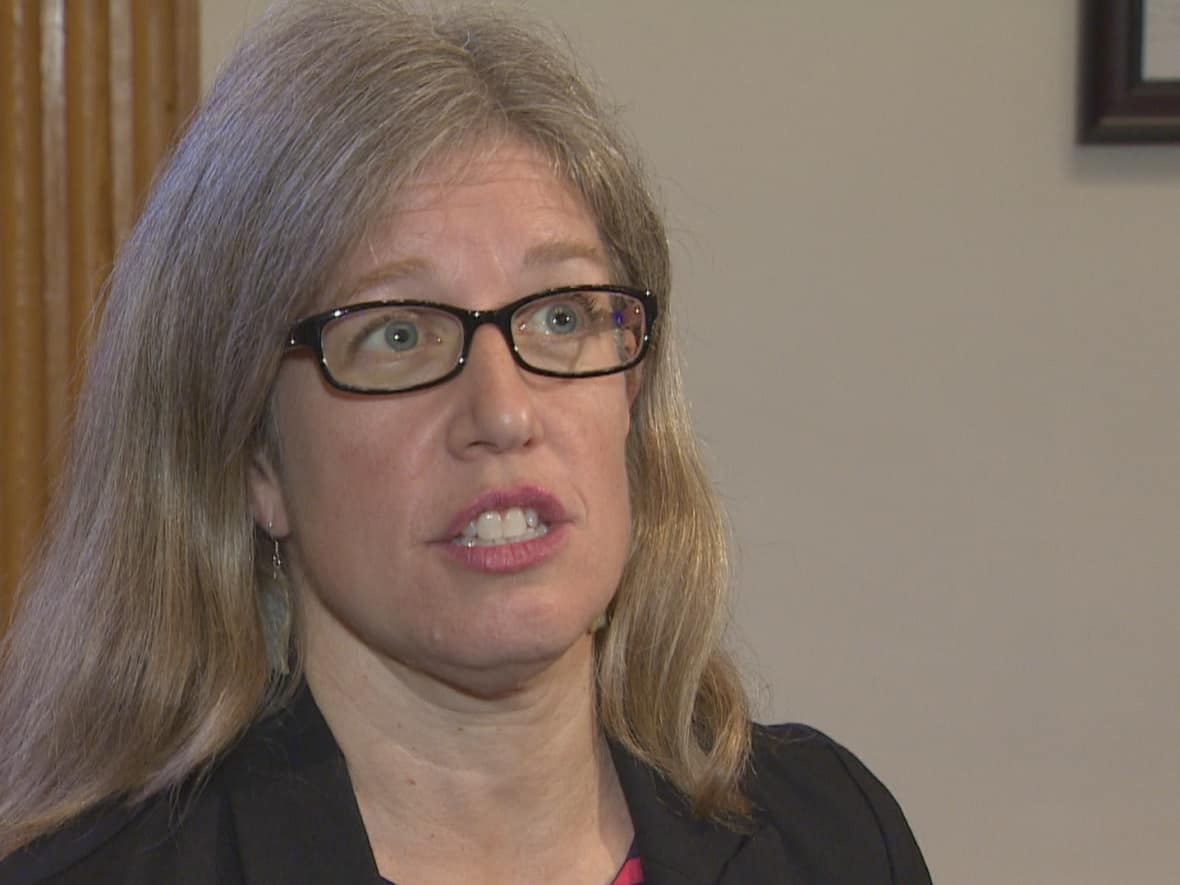
Opposition leaders say it's unlikely that government had any meaningful consultations with Indigenous groups before announcing in Tuesday's throne speech that it would put shale gas development back on the table.
Liberal Leader Susan Holt said the government doesn't have a "track record" of consultations with Indigenous groups and she doesn't believe they've changed their ways.
"There doesn't exist a productive relationship between this government and this premier and Indigenous communities in New Brunswick, and there's no track record of consultation or engagement," Holt said Thursday in response to comments made in the throne speech.
"And so, considering this came out of the blue in a throne speech, I do not believe Indigenous communities were consulted."
In Tuesday's speech, the government said it would discuss shale gas development with Indigenous people and other stakeholders.
Premier Blaine Higgs then offered few ideas on how he would overcome the fierce opposition to shale gas development the province saw in 2013.
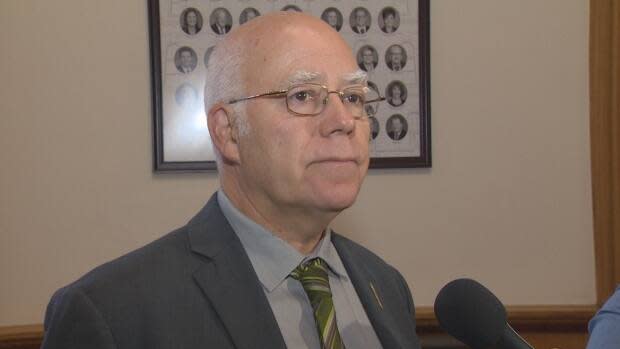
He said with the war in Ukraine, high energy prices and more focus on climate change, things have changed since then.
Green Party Leader David Coon also doesn't think government has spoken to Indigenous communities about fracking.
"Even if they have, what the premier seems intent on is simply being able to say, 'I've had a robust consultation with First Nations,' and then do what he wants."
"The power all rests in the premier's hands about what's going to happen. There's no independent mediation process."
Opposition Leader Rob McKee said the government's history on the issue would also suggest there was no consultation. He said the same thing happened in 2019, when the government approved a regulation to exempt the Sussex area from a provincewide moratorium on shale gas development.
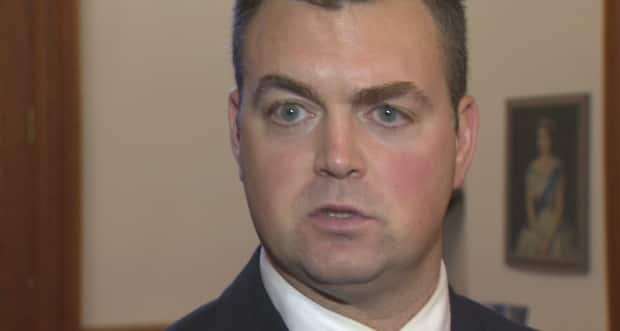
Several Indigenous leaders condemned the decision at the time, saying it happened without any consultation.
Indigenous leaders responded in a joint statement Thursday, effectively ending the debate over whether they had been consulted — they were not.
It's "the same old song and dance from the Higgs government," said Chief Allan Polchies of Sitansisk First Nation.
"As he has throughout his tenure as the leader of this province, Premier Higgs continues to undermine the Wabanaki peoples as the rights holders of the land that his government is situated on."
The statement makes clear that Wolastoqey and Mi'kmaq are "vehemently opposed" to fracking and have been for more than a decade.
"The only fracking going on in New Brunswick is in the premier's head," said Polchies.
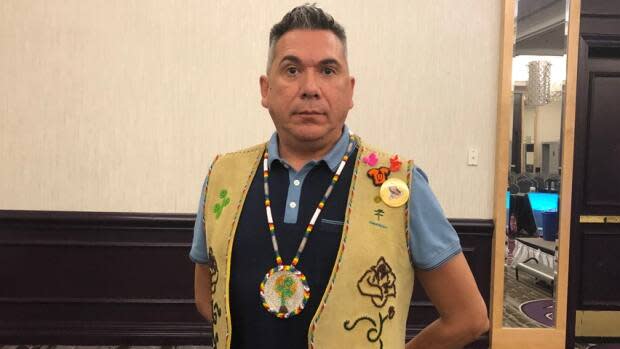
The statement makes it clear the groups were not consulted before the throne speech.
"The only plans we've heard about fracking from the provincial government have been through the media. No one from government has come to speak with us about their plans around fracking," said Chief George Ginnish of Natoaganeg. "We have told the Premier that when it comes to consultation, early engagement on a project is a good first step. We all know what can happen when a lack of conultation takes place, especially around fracking."
"This government has not demonstrated a willingness to work with Indigenous rights holders as equal partners in a treaty relationship," said Chief Ross Perley of Negotquk.
"If the Higgs government is eager to work with Indigenous people, we have a long list of files we are ready to make good progress on," said Perley.
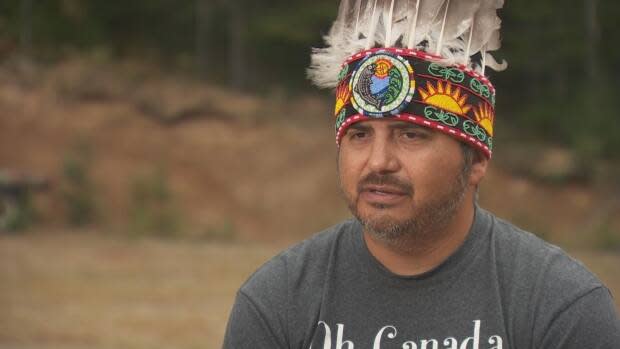
Kopit Lodge was founded by those who fought against fracking in Kent County.
"The Province has not engaged in any conversations with us to date about re-opening fracking across unceded Mi'kmaq territory," said Kenneth Francis, a spokesperson for Kopit Lodge.
"Meaningful consultation requires early engagement on a government-to-government basis. The Province's unilateral announcement of its intent to lift the fracking moratorium despite our Nations' longstanding concerns is disrespectful and fails to meet this standard," Francis said in the joint statement.
Addressing the housing crisis
Holt also reacted the government's plan to address the province's housing crisis, including creating new incentives for developers to build more housing.
After the speech, which was delivered in the legislature by Lt.-Gov. Brenda Murphy, Higgs told reporters the province could step in to guarantee loans for first-time home buyers in parts of the province where there's a shortage of housing and prices are high, but he didn't offer any specifics.
Not did he make mention of extending the rent cap.
While she's pleased the government is addressing the issue, Holt said she's concerned about the timing.
"There is an urgency to this that concerns me. The work to develop a whole strategy is work that you should do with care, but we have people who are being pushed out of their homes today because of renovations," she said.
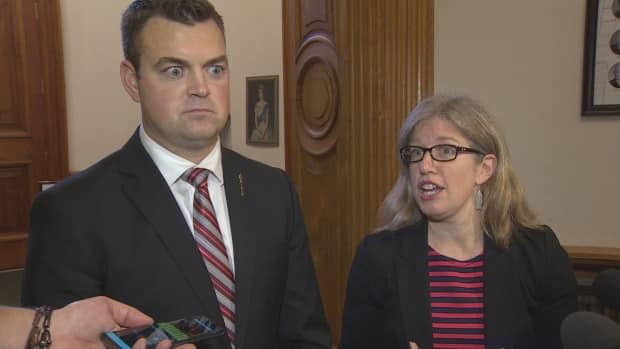
She said renters are also concerned that their rents will increase in January when the rent cap expires.
"And so there's some questions we need to answer with urgency. While they look at the comprehensive nature of a housing strategy that I think is in the best interest of New Brunswick, I fear that it's not going to move as quickly as renters and New Brunswickers need it to."
She said landlords are also worried about having to "pull units off of the market if they can't find ways to manage their property tax bills."
"So there's a lot of work that needs to be done. We need comprehensive property tax reform. We need to strengthen our protections for tenants and commit to them that the rent cap that exists in every other province in Canada will continue here."


